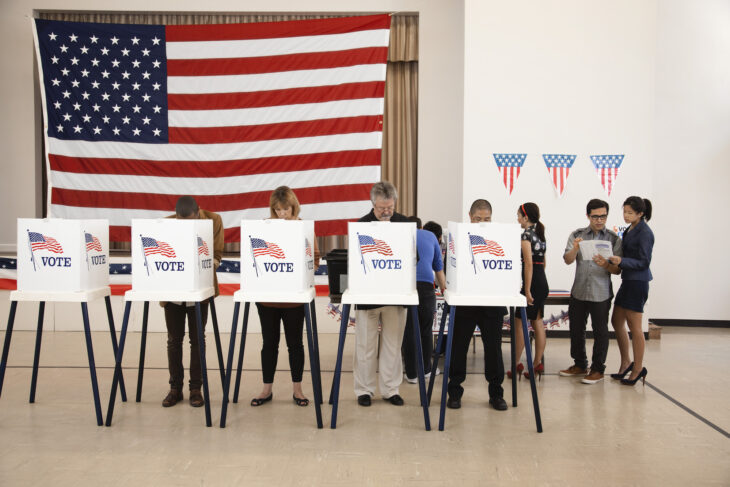
I once had a friend — a talented friend. He was a few years older than me. I met him while I was in the teaching profession. We shared, pretty much, the same religious faith. There was a shared love for books, for religious and popular music, and for sports.
We were never short on conversation. There were, however, moments of tension and of stark disagreements between us. The friendship lasted for a few decades until it faltered and failed. Issues which I had overlooked and which I had allowed to brew finally got out of hand.
I was ever the peacemaker, and ever the one willing to compromise, but that was not his strength. He was a lover of words, but he seemed to have been more enthralled by their meanings than by the rigours surrounding their implementation. And that was part and parcel of the debilitating anemia of our friendship. It seemed, at least to me, that it was a one-sided association, especially when it mattered.
From his perspective the garments of objectivity and of self-sacrifice seemed to have looked better on me than they did on him. He seemed to ask for more and more from me with less and less from him. My patience had reached the end of its tether, and my welcome mat had become worn and tattered. I was tired of putting out fires started by him and being singed by them. I was tired, and, as a matter of respect, I typed a letter telling him that our association had come to the end of the road, with sufficient explanation, as a lawyer would have done in a legal brief that was prepared and submitted to a court.
I was, as a result of that letter, vilified by him. He, for example, misled a mutual, venerable acquaintance of ours with that letter, “cherry picking” bits and pieces of it. And, as he was more in love with the etymology of words than he was with their application in life, the same was true of his attitude towards the principles which surround the formation and the execution of social contracts, with me and with other individuals with whom he interacted.
He and I had different ideas in that regard. He, for example, throughout his life, believed that the students who he had taught owed him something, especially when he was in need. He would complain about how ungrateful they were and would berate them before me and before others. But had he appreciated the basics of the concept of social contracts, formal and informal, he might not have exhibited such unwarranted and misplaced behaviour.
And what was my take on the alleged lack of gratitude of his students? I felt that they had already satisfied the conditions of their social contract with him, with me and with every other teacher. This they had done, at least to me, in two ways: 1. Their parents were all paid up with respect to their school fees, and, 2. They had all exhibited their appreciation by passing their exams, and by going on to deal with the challenges of life as decent and productive members of society. If they wanted to do anything outside of what they had signed on for, to celebrate their teachers in “tangible” ways, then that would have been another matter.
But my erstwhile friend and colleague saw it differently. He was like so many in society who lack an appreciation for the basics of informal and formal social contracts. But, I dare say that the problem is not confined to those who ought to know better, but to those who are oblivious to the rudiments of social contracts. This, I believe, has led to much confusion in the world. People cannot do what they do not know, and they cannot have a sense of accountability if the hallmarks of propriety are alien to them. And so, although education, and especially civic education, is not a panacea for all our social ills it is, nonetheless, indispensable.
One dictionary defines the word “contract” as a “written or spoken agreement, especially one concerning employment, sales, or tenancy, that is intended to be enforceable by law.” Most or all societies, especially the democratic ones, have social contracts between those who govern and those who are governed. Within such contracts, or agreements, everyone knows what the parameters are within the relationships between the rulers and the ruled. The same is true, to varying degrees, in our own personal relationships. Can two walk together, the Good Book asks, unless they are agreed?
That being said, the problem is that many are versed in snippets of such social contracts, as they are bandied about in social media and disseminated through biased filters of one kind or another. And so, many boast of knowledge shrouded by shadows, only to regurgitate distorted opinions, not having conducted independent research of their own.
And so, if the powers that be do not educate the masses then the bonds of brotherhood will become frayed and the foundations of civilization will disintegrate into anarchy. And, because of collective ignorance, some individuals, possessing power and influence, can and have taken advantage, seeking to change the conversation by subtly or overtly adjusting key constructs within such social instruments thus leading to all kinds of unpleasantness.
Having an understanding of the essentials of social contracts between peoples and their governments, especially in liberal democracies, is crucial. For the year 2024, for example, I have made it my mission to carefully read the Constitution of The United States of America. So far, I have managed to read one book on the subject, from cover to cover, having proceeded article by article, section by section, and line by line. I am currently in the throes of reading another book on this subject, with yet another one waiting in the wings to be read. All three supply annotated versions of the Constitution which provide insightful, historical background with respect to clauses, phraseology contained within it and the intent of its framers.
I am convinced that a study of the Constitution should not just be a subtopic in civics or social studies education, but as a course of study all by itself. The document is not long nor is it difficult to read, but it was written in such general language that it is easy to see why and how it can be and has been misinterpreted by many in society, especially by judges who approach it with jurisprudential theories which were born out of subjective and insular political, cultural, religious, and economic experiences. With such approaches to the document, it is no wonder that many citizens have found themselves shunted to the outer margins of society.
In the year 1762, Genevan philosopher, Jean-Jacques Rousseau, published a book titled, The Social Contract. The book theorizes about how to establish legitimate authority in a political community, that is, one compatible with individual freedom, in the face of the problems of commercial society. In the formation of modern democracies this was one of many go-to resources for politicians who possessed a sense of foresight for the well-being of their countries. Against the tyranny of monarchy it helped to inspire political reforms or revolutions in Europe, especially in France.
The Social Contract argued against the idea that monarchs were divinely empowered to legislate. Rousseau asserts that only the general will of the people has the right to legislate, for only under the general will, can the people be said to obey only themselves and hence be free. If one reads the U.S. Constitution, it is not hard to see the influence of Rousseau’s ideas upon it. What America has in its constitution, and, indeed, what other democracies have engrafted into their own, came out of the fiery crucible of experience, left with blood splattered on the uneven and rocky paths of history. Many learned, via trial and error, what it means to have a viable social contract which can be enjoyed by all the people. I fear that the wrong people make more of a careful study of such documents and of the ideas which gave genesis to them than do the right people. And these wrong people are often a part of the movement which tends to discourage such a study, and to corrupt it with the introduction of highly suspect information for selfish gains.
Whether Americans realize it or not, we are all caught up in a war of ideas in which many of us have blindly and willingly allowed ourselves to be used as pawns. Not all of us have the means to purchase and maintain shelves upon shelves of books, but public libraries, nonetheless, still dot the landscape in America and elsewhere in the world. Studying is not an “elitist” activity, no more than potty training is, as some would lead us to believe. The hypocrisy of such individuals can be seen by the vast amount of reading material that they possess.
In recent times I have heard, increasingly, the word “woke” being bandied about, especially by politicians on the right, in derisive tones. In fact, without a clear definition of the word as they use it, “woke” is often used to stir debate and to create social policy touching such areas as public education and even national defence. And yet, like a chameleon, the word “woke”, depending on who is using it, tends to take on different hues. I do not know. But, if the usage of the word tends more towards a denotative than a connotative meaning, especially with respect to intellectual awareness of verifiable information that was once obscure, then what is the harm?
For all their progress on the world stage, fuelled by new found facets of knowledge, Americans have had a long record of eschewing things intellectual. The idea of “woke”, used pejoratively today, is not a new idea, but a new iteration of an old idea. Looking at my association with my former friend, a social contract from a microcosmic perspective, I became awake to certain things which went unheeded and unchecked until when they presented themselves with glaring and unbridled force. When I responded to them with urgency and prudence, deciding not to rehabilitate but to sever the friendship, I was made the healthier for it. America becoming “woke” could also, from a macrocosmic vantage point, benefit from the same thing if she would dare to do so.
Caroline Duer, of the University of Tennessee, Knoxville, in a paper titled: The Civic Education Crisis and Its Effect on Young Voters summed up the situation here in America well, when she wrote that:
“The civic education crisis is the most underrated crisis in the American education system. The voter turnout rates in America are very low….As the civic education crisis grows, and national support for civics ebbs and flows, citizens, especially young people, are going to be the victims. When civic knowledge decreases, it is impossible for our government to function properly.”
Alexis de Tocqueville, who was a French aristocrat, diplomat, sociologist, political scientist and historian, spent nine months travelling across America after arriving in 1831. In his book, Democracy In America, he made the following comment, with which I will close, an observation which I verily believe to be still true today:
“The observer who is desirous of forming an opinion on the state of instruction amongst the Anglo-Americans must consider the same object from two different points of view. If he only singles out the learned, he will be astonished to find how rare they are; but if he counts the ignorant, the American people will appear to be the most enlightened community in the world. The whole population … is situated between these two extremes.”
I



